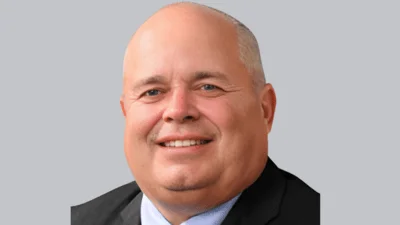In an effort to garner more support for a highly controversial “any willing pharmacy” (AWP) bill backed by U.S. Rep. Cheryl “Cheri” Bustos (D-IL), the National Community Pharmacists Association (NCPA) will be lobbying members of Congress today during a Congressional Pharmacy Summit in Washington D.C.
Also known as Ensuring Seniors Access to Local Pharmacies Act, H.R. 793 would allow community pharmacies in medically underserved areas (MUAs), medically underserved populations (MUPs) or health professional shortage areas (HPSAs) to participate in Medicare Part D preferred pharmacy networks, as long as the pharmacies agree to the contract terms and conditions other in-network providers are obligated to operate under.
The NCPA stated on its website that the bill is necessary because many Medicare beneficiaries are told by pharmacy benefit managers (PBMs) which pharmacies to use based on exclusive agreements between PBMs and certain pharmacies, meaning that most of the time pharmacies excluded in the network are “never given the opportunity to participate” in the first place.
“Preferred networks were originally created to foster fair and increased competition, as well as save the federal government money,” the NCPA stated. “However, PBMs have refused to make their contracts transparent or public. Even in the taxpayer-funded Medicare Part D program, the federal government is left with just the assurance that these drug middlemen are saving beneficiaries and taxpayers money, rather than actual proof of savings.”
But the bill has drawn a lot of criticism from opponents arguing that AWP laws ultimately drive up drug costs and are not in the best interest of consumers.
Thomas Schatz, president of Citizens Against Government Waste, wrote a letter to members of the U.S. House earlier this month, asking them not to support H.R. 793 or H.R. 244 – which calls for transparency between prescription drug plan sponsors and pharmacies -- as both would interfere with price negotiations and preferred pharmacy networks.
“H.R. 244, the ‘MAC Transparency Act’ and H.R. 793, the ‘Ensuring Seniors Access to Local Pharmacies Act,’ may sound like prudent concepts, but in reality they would stifle competition and drive up costs for Medicare beneficiaries and taxpayers,” he wrote.
Schatz added that in 2004, the Congressional Budget Office’ (CBO) projected that Medicare Part D’s cost would be approximately $123 billion by 2012, but the actual cost was less than half of that projection -- $55 billion.
Health care expert Devon Herrick of the National Center for Policy Analysis also expressed concern with the proposed bill in a column, stating that such legislation “weaken the tools insurers and PBMs use to negotiate low drug prices with pharmacies on consumers’ behalf.”
“The way it typically works, Medicare Part D drug plans are all private," Herrick told Rock Island Today. "They were purposely set up to be private, and are administered by private firms that compete with each other and drive hard bargains with drugmakers as well as pharmacies to get the price as low as possible."
Herrick said that one of the ways Medicare saves money and lowers premiums for seniors is through the use of exclusive provider networks.
“I’ve talked to seniors who are hoping all of the pharmacies they would ever go to are in their networks," he said. "But the pharmacy industry, the trade associations don’t like the narrow networks. They promulgate laws in state after state trying to require drug plans to basically let any pharmacy fill a prescription who will abide but the terms."
The Federal Trade Commission opposes AWP laws, Herrick said, because part of the reason for preferred networks is to drive business to firms willing to offer a better deal.
Pharmacies, on the other hand, are in favor of bills such as H.R. 793 and are essentially trying to change federal law, he added.
“State laws do not affect how a federal program works, and so that was a chance (for) Congress to take some of the regulations at the state level and force it on the Medicare Part D program," Herrick said. "I am not a fan of those kinds of laws and the Federal Trade Commission is not either."
Co-pays and drug prices for seniors should be lower at a preferred pharmacy compared to a non-preferred pharmacy – a benefit that would end for consumers if preferred pharmacy networks didn’t existed, Herrick said.
But pharmacies not included in preferred pharmacy networks are working hard to tip the scales in favor of increased drug costs by constantly lobbing politicians to sponsor bills that eliminate competitive practices.
“There was just a regulation passed in Oklahoma, for example, that took an earlier law from last year that allowed pharmacies to contest fees, MAC (Maximum Allowable Cost) list fees, they thought were too low,” he said. “They changed just a couple of words, they changed MAC list to reimbursement amount and that opened up the ability to dispute contractual arrangements to name brand drugs. So it is an ongoing battle and it happens mainly at the state level, but that is an example that is happening at the federal level as well.”
Bustos did not respond to a request for comment.





 Alerts Sign-up
Alerts Sign-up